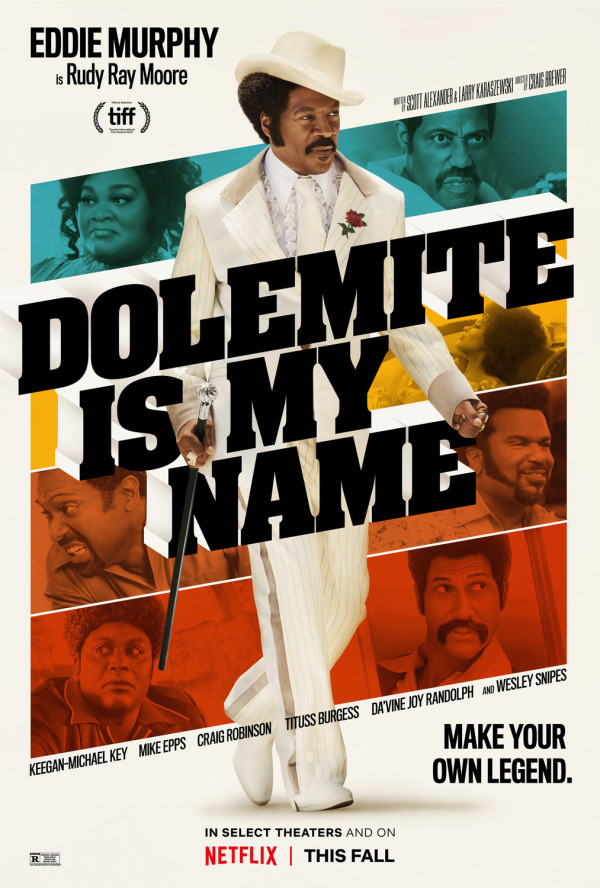10. Dolemite Is My Name (Dir. by Craig Brewer, 118 minutes, USA)
Equal parts heartwarming and hilarious, Dolemite Is My Name is a love letter to 70s blaxploitation cinema taken to the next level by the glorious return of Eddie Murphy. The film chronicles the journey of comedian-turned-blaxploitation legend Rudy Ray Moore (Murphy), who when he was told there wasn’t a place for him on the silver screen, made his own way and brought his friends along too. I’m not traditionally one for feel good fare, but thanks to its raunchy protagonist, who also happens to be a consummate optimist, I couldn’t help but spend the entire film rooting for the man who found his calling playing a foul-mouthed, rhyming, kung-fu fighting pimp.
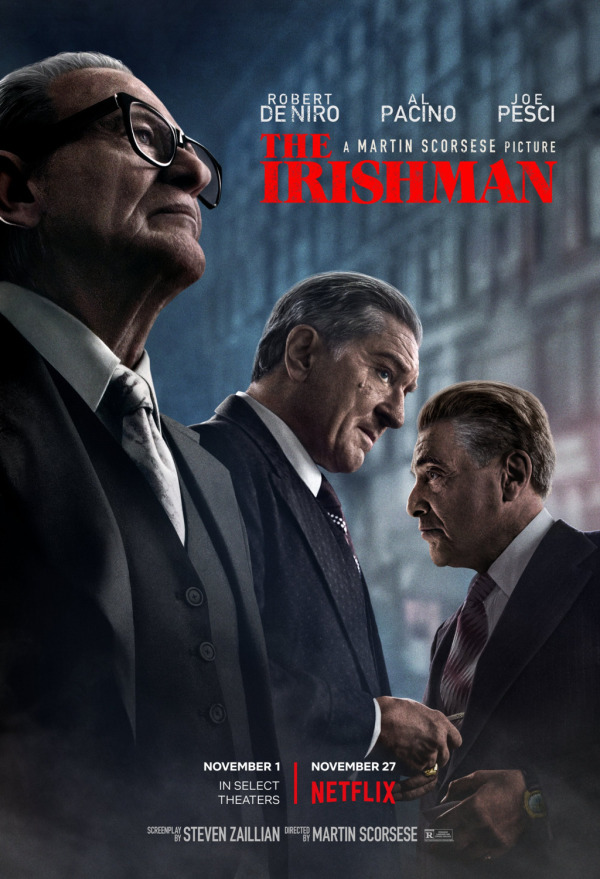
9. The Irishman (Dir. by Martin Scorsese, 209 minutes, USA)
With a script that is nothing short of a master work, about the “true” story of blue collar hitman Frank Sheeran (Robert De Niro), coupled with an amazing cast of cinematic legends there is a filmmaking language here that is unmistakably Scorsese. The gangster genre has been the bread and butter of Scorsese’s career and quite deservedly gets a lot of love and a lot of hate. With The Irishman Scorsese has come full circle, closing the loop he launched his career with when he turned his lens onto his New York upbringing in Mean Streets. As Frank tells the story of his life from his nursing home wheelchair, there’s a pervasive sense of loss and regret that slowly ramps up as we see Frank choose this lonely path, eventually pushing everyone away or killing them with his bare hands.
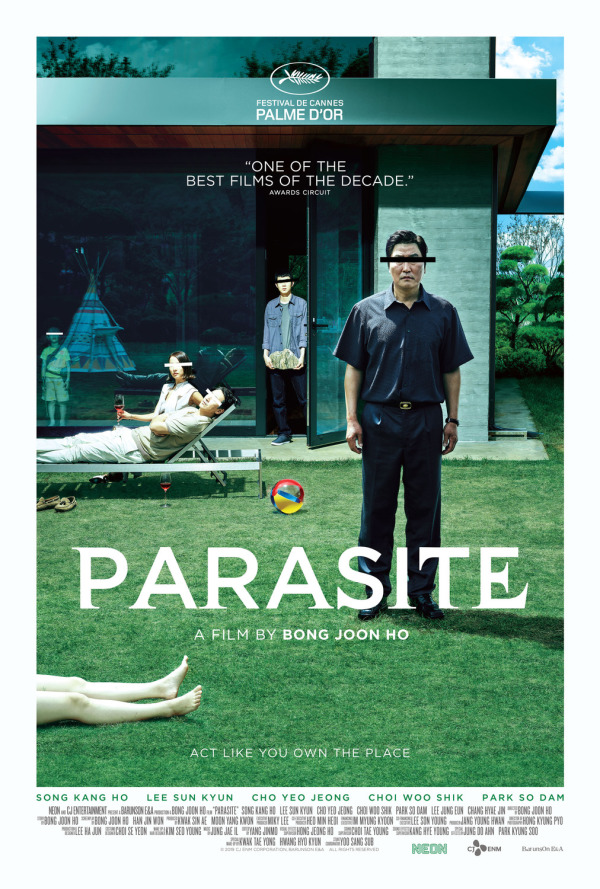
8. Parasite (Dir. by Bong Joon-ho, 132 minutes, South Korea)
Bong Joon-ho’s latest meditation on class, about a poor Korean family who infiltrates a wealthy family’s life, is filled with dark comedic genius and the kind of underlying themes about class that are universal. Invoking the kind of nepotism that would put Trump to shame, the family of grifters quickly unseat the entire staff of servants at the beautiful mansion, and setup shop. That is until they discover a disturbing secret just underneath their feet. Bong Joon-ho has been making great films for over two decades now, so it’s great to see him get the accolades he deserves.
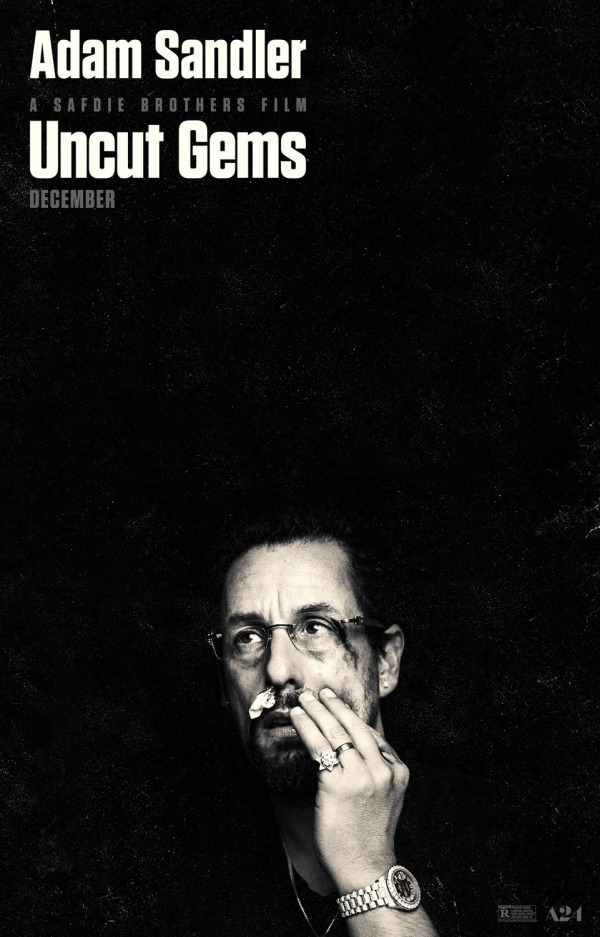
7. Uncut Gems (Dir. by Josh and Benny Safdie, 135 minutes, USA)
Uncut Gems is tense, sleaze-filled trip through the dark underbelly of New York’s Jeweler’s Row. Adam Sandler here gives the performance of his lifetime as New York the Jewish diamond district jeweler Howard Ratner, a compulsive gambling addict, an adulterer and neck deep in debt. Howard is hoping for an easy out with an uncut African opal he recently acquired, but the problem is that the universe is aligned against him. The Safdie Brother’s, assisted by Ronald Bronstein, have crafted a sublime slice of sleaze that manages to get its audience to side with its tragically flawed protagonist and even root for him in a third act that will leave you speechless and possibly give you a heart attack.
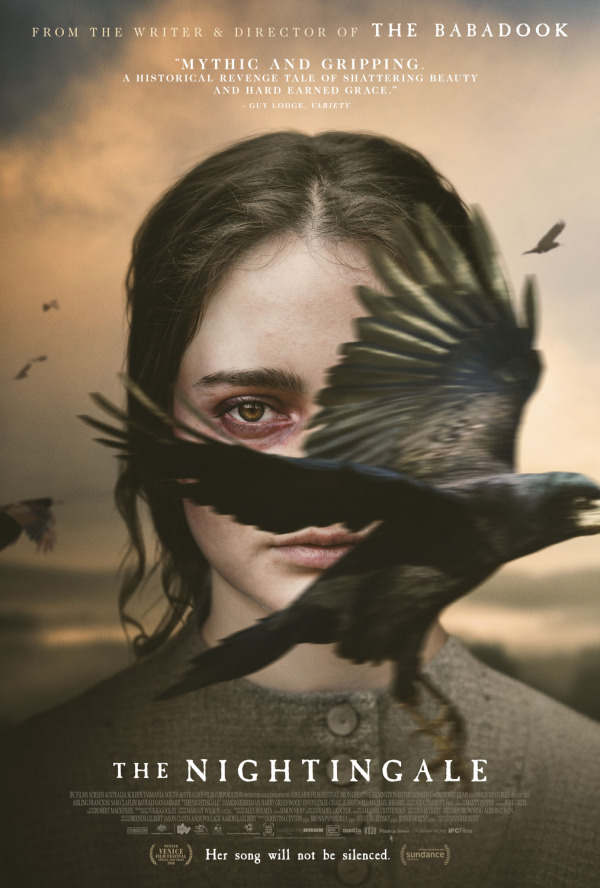
6. The Nightingale (Dir. by Jennifer Kent, 136 minutes, Australia)
The Nightingale isn’t an easy watch, but it rewards those brave enough to endure it. Jennifer Kent (The Babadook) turns in a sophomore effort that solidifies her as a powerful voice in film. The film that takes place in Australia in 1825 during the British colonization following Clare (Franciosi) a 21-year-old Irish convict out for revenge after not only being raped by British soldiers, but also being forced to watch them slaughter her family. While we have seen iterations of this tale before, its rarely told by someone who would have suffered under the tyranny of the colonizers, which gives the story an authentic voice. The film doesn’t try to make anyone into a heroes or saviors because it’s too busy making the point that while we may be more civilized today, racism, sexism and brutality is woven into the fabric of our DNA and hasn’t gone anywhere.
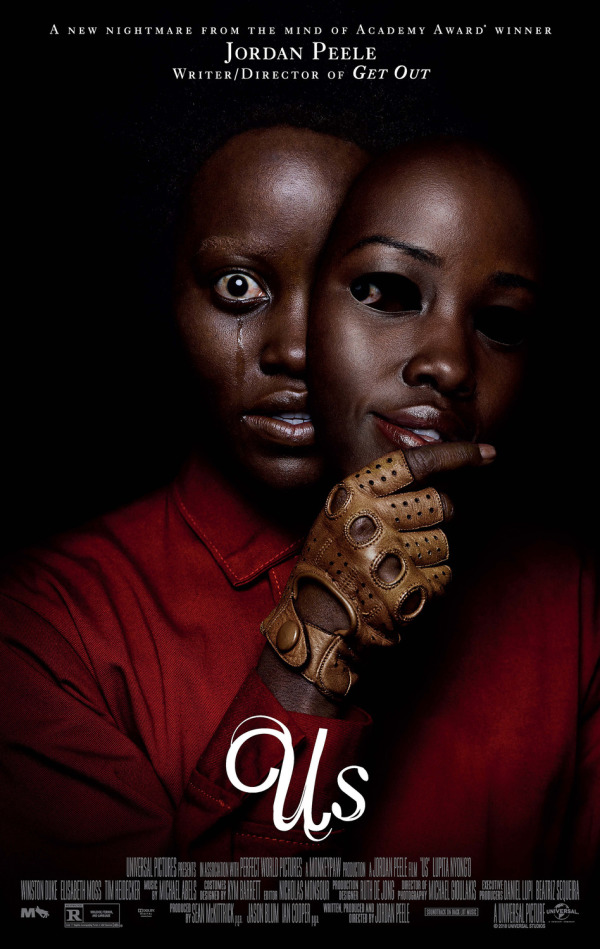
5. Us (Dir. by Jordan Peele, 116 minutes, USA)
Simultaneously terrifying and hilarious, Us is a popcorn movie with the depth and gravity of Kubrick and the hair-raising suspense of peak Hitchcock. Unlike its predecessor, Us fits more squarely in the horror genre, with the occasional pivot from terror to comic relief. The film channels the creeping dread and paranoia that made Get Out so great, and like that film it holds a mirror up to the semi-invisible internecine warfare raging in every atom of present-day America.
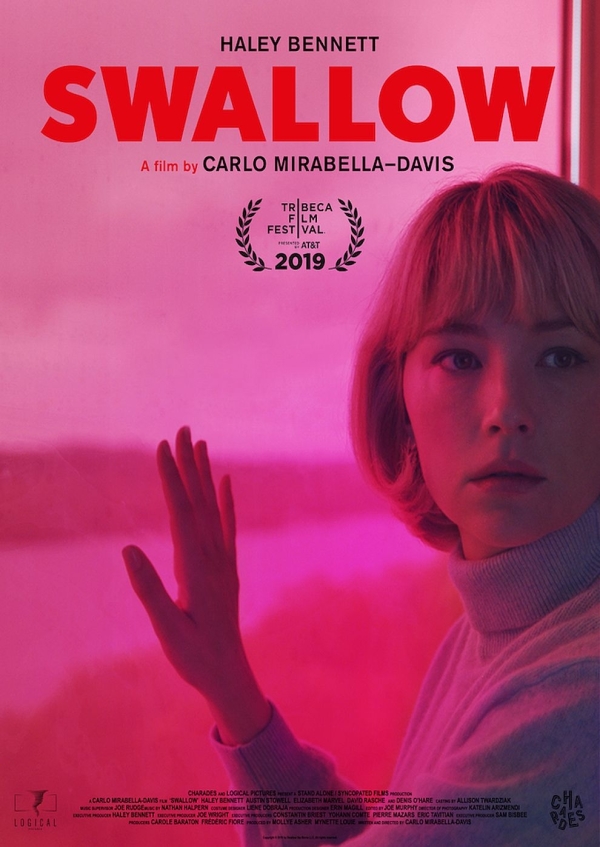
4. Swallow (Dir. by Carlo Mirabella-Davis, 94 minutes, USA/France)
A woman who marries into a wealthy family who has no control over her own life develops pica to prove she still has control over one thing, her own body. As she begins to eat and pass knick-knacks around the house to pass the time, the film almost feels like a comedy until she gets pregnant. When her wealthy in-laws discover her compulsion and attempt to intervene for the good of her unborn child, we are then confronted with the source of her trauma. Brilliantly acted, and flawlessly paced, the film takes an unexpected turn once we discover her secret, with the film morphing from comedy to drama becoming one of the most moving pieces of cinema I had the pleasure of viewing this year.
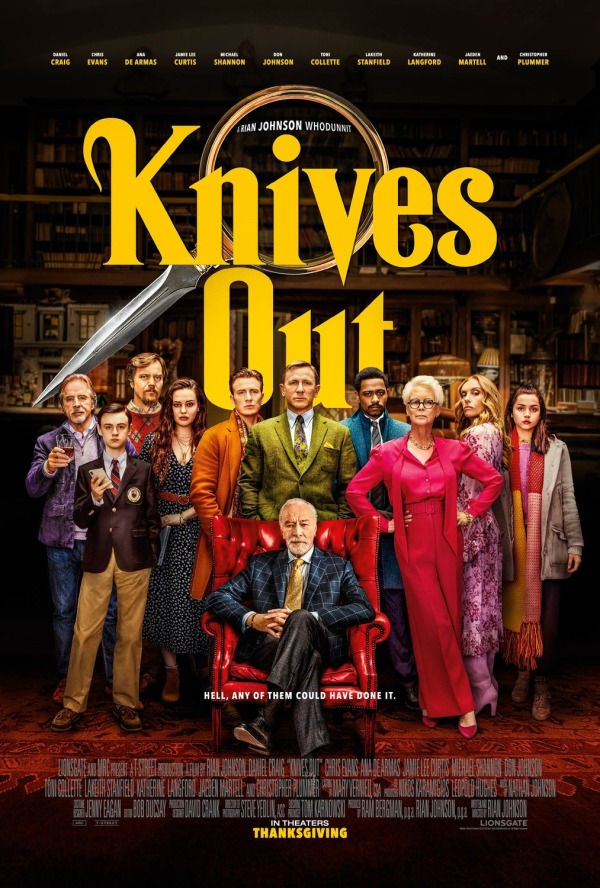
3. Knives Out (Dir. by Rian Johnson, 130 minutes, USA)
Edge-of-your-seat mystery that is bitingly relevant as it is clever, and feels like a pointed response to the alt-right trolling director Rian Johnson was subjected to in the wake of The Last Jedi. Armed with a stellar cast and an irreverent, meticulously-paced script, Johnson has crafted a new genre classic that will no doubt give us more adventures of legendary private investigator Benoit Blanc (Daniel Craig) in the near future.
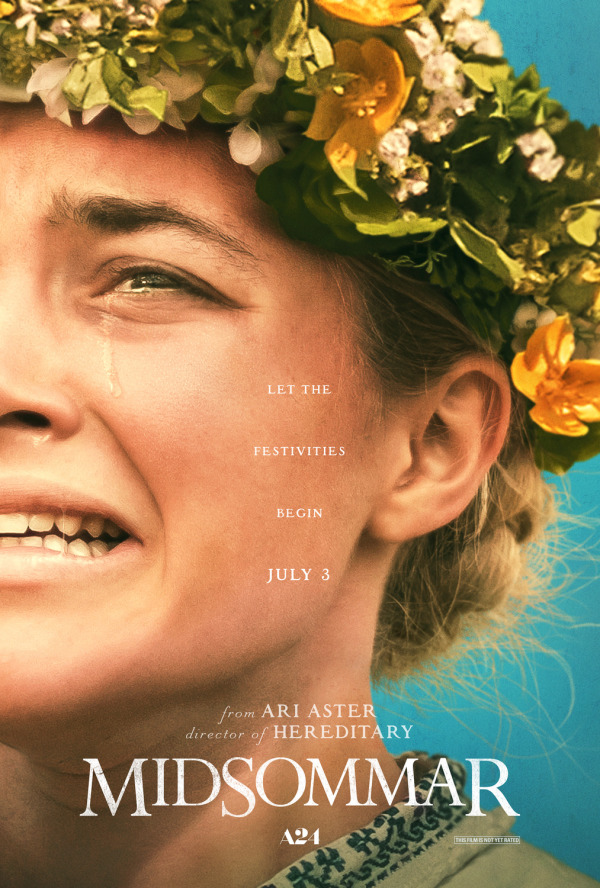
2. Midsommar (Dir. by Ari Aster, 147 minutes, USA/Hungary/Sweden)
As with Hereditary, Midsommar operates on two very distinct levels, the first being the tumultuous relationship between Dani (Florence Pugh) and Christian (Jack Reynor). The second being the terrifying folk tale about a Swedish cult in a small secluded village that carries out a sacred rite every 90 years and the unfortunate souls that are unwittingly invited like lambs to the slaughter. The way Ari Aster deploys these competing story lines to push and pull the narrative in opposite directions before coalescing in the cathartic third act is a marvel to behold. Midsommar is an exquisitely visceral cinematic experience that leaves you both physically and emotionally exhausted as the credits begin.
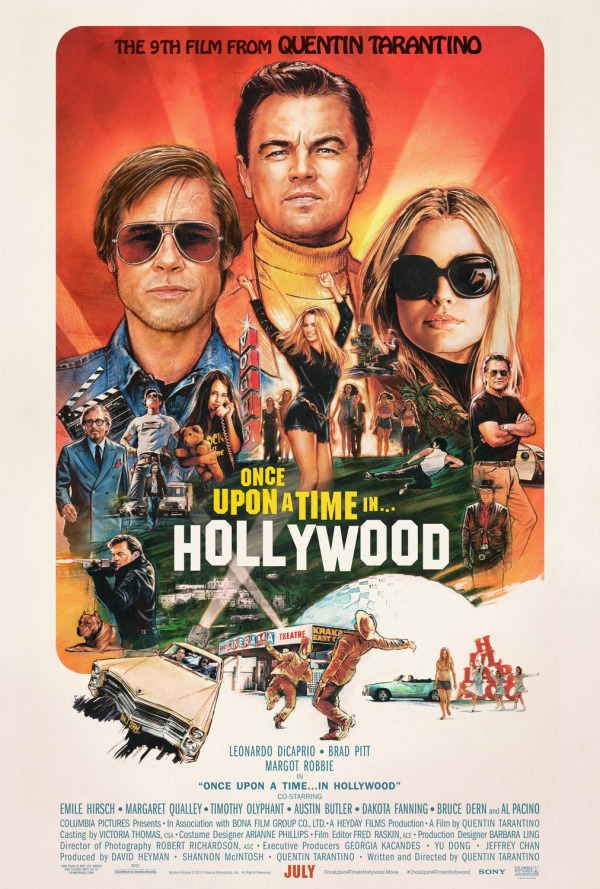
1.Once Upon a Time in Hollywood (Dir. by Quentin Tarantino’s, 161 min., USA)
I’ve seen Quentin Tarantino’s love letter to 1969 Hollywood five times now and every time I find some new little detail or nuance in a character I might have missed before. For as opinionated Tarantino is, his latest (and possibly last) film lets the audience draw their own conclusions and find their own meaning with its revisionist take on a moment that changed America forever. For me it seemed like a very autobiographical take on the current battle between old Hollywood and the younger more PC set slowly coming into power. Sure it’s a great hang out movie, and the script is one of his best, but there is so many devils in the details as Tarantino fills this world with some of the most introspective and nuanced characters to date and career high water mark performances by Brad Pitt and Leonardo DiCaprio.

